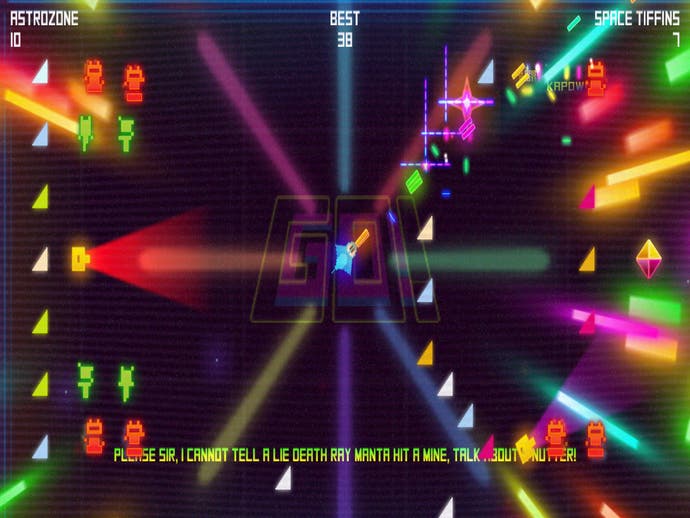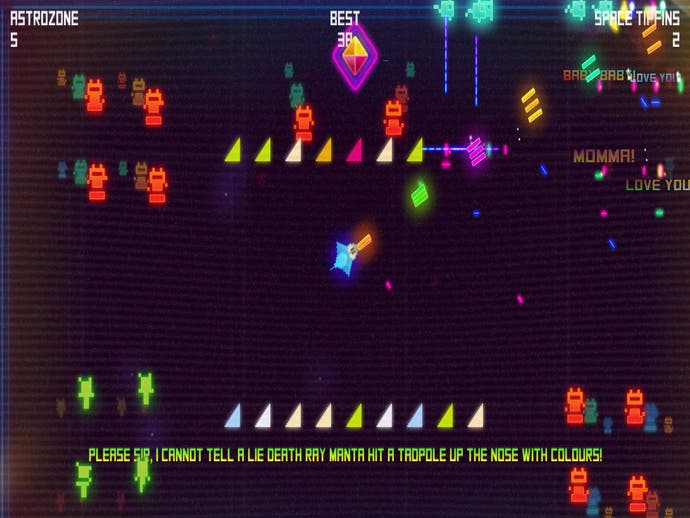DRM: Death Ray Manta review
But not as EA know it.
DRM stands for Digital Rights Management, but thankfully we can now consign this ugly initialism to the funeral pyre of justice. Burn! And rise, Death Ray Manta, a googly-eyed Elasmobranchii that shoots lasers, kills things, and would never dream of restricting your access.
Not just a funny game, DRM is a fresh one - a twin-stick shooter that doubles up as a quickdraw nemesis, replacing long levels with frantic and fast chunks of battle. In screenshots it may look like a Geometry Wars type of experience, but DRM is a much more tightly-focused and unforgiving game. Each stage lasts seconds, buffered by a few seconds of visual transition, so there's a strange rhythm to playing it: constant bursts of intensity with pauses for breathing.

The arenas are populated by a surreal mix of homing bunnies, missile-launching security cameras, mines, Gridrunner turrets and a single slice of psychedelic tiffin. Bag each stage's tiffin for a weapon and score boost and blow away everything else; stages end when all of the free-floating enemies have been killed, regardless of whether you snaffled the cake. And just to emphasise, this takes place over seconds.
DRM's most singular feature, though I'm not sure if that's quite the right word for it, is that one hit kills the manta - and, Ocelot incoming, there are no continues my friend. This goes hand-in-hand with the most rudimentary of scoring systems (one point per level beaten, one point per tiffin) to give DRM a different character from what's usual in the genre.
Why such a basic scoring system? I thought about this and realised that it's the whole point; every arcade shooter has a scoring system, and inevitably it dominates your thinking about how to play it, maximising multipliers and so on. DRM is much purer for the lack of one, refocusing you on the moment. It's a little thing, really, and it doesn't dominate DRM - but it means it's not so much a score-chaser as a challenge to see what's next. The arena layouts are fixed, so you've soon mastered the game's early stages and are racing to get back to where you belong, which is, of course, when you take a cheap hit and go right back to the start.

One hit kills and no lives is pretty daring stuff in the age of the mollycoddled gamer, but DRM gets away with it by teasing out the old killer instinct. Its elements and layouts seem so simple and the manta so powerful that surely nothing stands in the way of this run being the one. It can be infuriating, right enough, to get within touching distance and have to go back to the start, but that's the game, and why it feels like an achievement when you do see something new.
Perhaps the biggest tribute you can pay DRM is that, though its influences are many and obvious, you couldn't point to a single one and say 'there' - not even Jeff Minter's work. It doesn't play out quite like anything else, veering between brutal and whimsical all the time, and at its best it hits that shooter sweet spot: when your brain is absorbed, fingers moving in advance, the music's pumping, and your eyes observe genius skills emerging from some subterranean consciousness. So please don't quote this out of context, but I'm a big fan of DRM.

